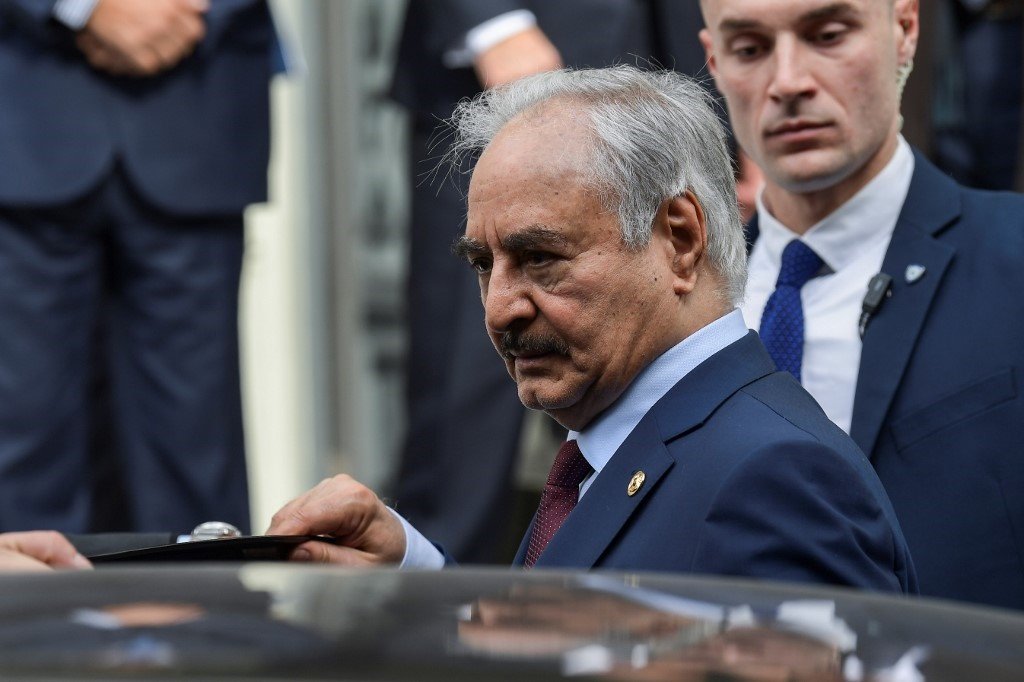

Libyan strongman Khalifa Haftar said on Monday he had “a popular mandate” to govern the country, declaring a key 2015 political deal over and vowing to press his assault to seize Tripoli.
In a speech on his Libya al-Hadath TV channel, he said his self-styled Libyan “army” was “proud to be mandated with the historic task” of leading Libya.
“We announce our acceptance of the people’s will and mandate and the end of the Skhirat Agreement,” he said, referring to a 2015 United Nations-mediated deal that produced the unity government.
READ | Haftar forces pound Libya capital after losing towns
He did not make clear whether an elected parliament in the country’s east, a signatory to the deal, backed his move – or what its future role would be.
Haftar has so far drawn his legitimacy from the administration based in the country’s east, and last April his forces launched an assault to seize the capital Tripoli, in the west, from the Government of National Accord.
He said on Monday his forces would work “to put in place the necessary conditions to build the permanent institutions of a civil state”.
Rejection
But an adviser to the UN-recognised GNA rejected Haftar’s speech on Monday.
“Haftar has once more exposed his authoritarian intentions to the world,” Mohammed Ali Abdallah said.
“He no longer seeks to conceal his contempt for a political solution and democracy in Libya. His statement tonight is the final, desperate act of a defeated man.”
Haftar had already indicated in 2017 that the Skhirat deal had “expired”.
Last Thursday, he asked Libyans to choose an institution to govern the country after the end of the Skhirat deal.
He also tabled the possibility of a “constitutional declaration”, raising fears that the country could end up being partitioned.
Plunged into chaos with the toppling and killing of long-time dictator Muammar Gadhafi in 2011, Libya has largely come under the control of Haftar’s forces in the east and armed groups backing GNA in the west.
Haftar’s offensive to seize Tripoli ground to a stalemate that has left hundreds dead and some 200 000 displaced.
